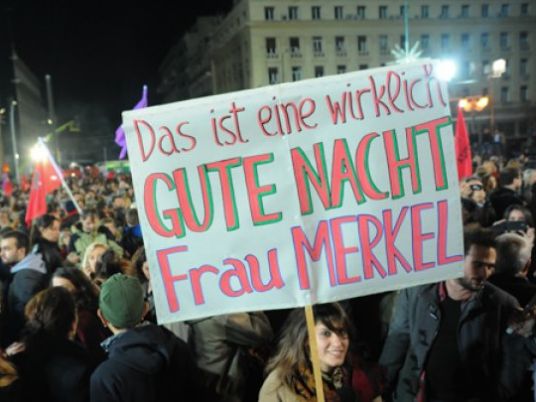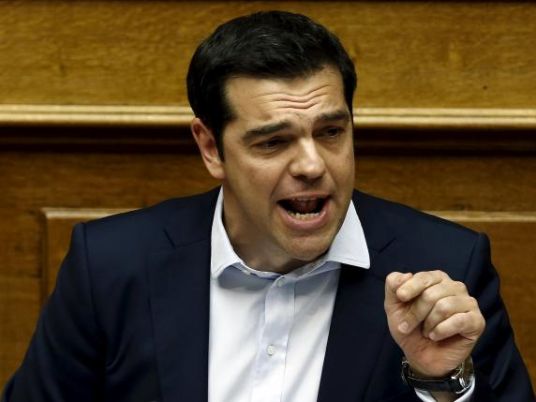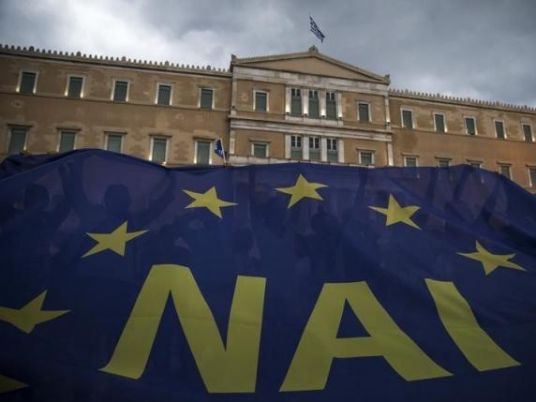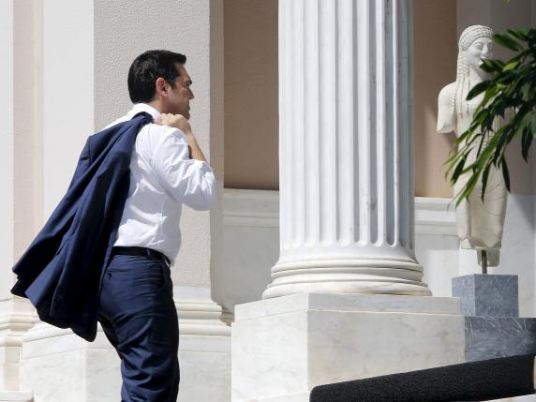
Greek Prime Minister Alexis Tsipras called on his divided Syriza party to ballot its members on whether Greece had any alternative to accepting a tough bailout, setting up a showdown with far-left rebels threatening to split the party.
Greece narrowly averted an exit from the euro zone for now when it struck an 11th-hour deal with lenders this month, but that cost Tsipras the support of a quarter of his lawmakers who accuse the party of betraying its anti-austerity roots.
In a defiant speech to the party's central committee gathered at an old movie theatre, Tsipras said his preference was for Syriza to hold an emergency congress in September to calmly deliberate strategy for the medium and long term.
But he said some in the party were demanding an immediate solution in the belief that ditching the bailout offer from creditors was a viable one, and suggested that be addressed with a snap vote by party members on Sunday.
He referred to the proposal as a "referendum" within the party, although it would be a vote by Syriza members rather than the general public, as took place on July 5 when Greeks voted to reject an earlier bailout proposal.
"We are telling the Greek people loud and clear and with no remorse that this is the deal we managed to bring to them and if there is someone who thinks that they could have achieved a better deal, let them come out and say that," Tsipras told the assembled members, who included dissenters like parliament speaker Zoe Konstantopoulou.
"If anyone thinks that Tsipras and Syriza refused a better alternative for the people, they should come out and say that."
The vote in three days – which must be called by the central committee if it is to be held – effectively throws down the gauntlet to the Left Platform of the party, which has become increasingly vocal in its defiance of Tsipras.
The deepening crisis within Syriza is the most serious political challenge to the prime minister, who otherwise enjoys unrivalled domination of Greek politics and remains popular despite his sudden U-turn to accept stringent bailout terms.
Failure to assert his grip on Syriza and quash the far-left revolt could plunge Greece back into turmoil and risk derailing talks with European and International Monetary Fund lenders on a new 86 billion euro aid package to keep Athens afloat.
The roughly 200 members of Syriza's central committee must decide whether the party ought to hold a regular or emergency congress or a ballot of members to redefine the its strategy.
"At the moment there are two different strategies competing in the same party – one that wants Greece inside the euro and the other that wants Greece outside euro," Olga Gerovasili, the government spokeswoman told reporters as she arrived.
"These two can't exist together at the government level."
The hardline Left Platform faction is demanding Syriza abandon talks with lenders immediately and hold an ordinary party congress to determine the party's course. A regular congress would favour the far-left, with the same members who attended two years ago returning to vote on Syriza's future.
Tsipras would benefit from an emergency congress, which would enable him to bring in new Syriza members and capitalise on the wider public support he has secured over the past two years, making it easier to defeat the far-left camp.
Forced to rely on opposition support in parliament to pass austerity and reforms packages, Tsipras is widely expected to call early elections to consolidate his grip on the party once he has agreed the third bailout package with lenders.
His government wants to wrap up negotiations with lenders on that package in time for a major debt payment due on August 20, before moving on to sorting out his party's troubles.
"Our priority is the (bailout) deal," Gerovasili said. "After this we can deal with party issues."
Negotiations with officials of the European Commission, the European Central Bank, the IMF and the euro zone's rescue fund, the European Stability Mechanism, were continuing discreetly in Athens on Thursday.



